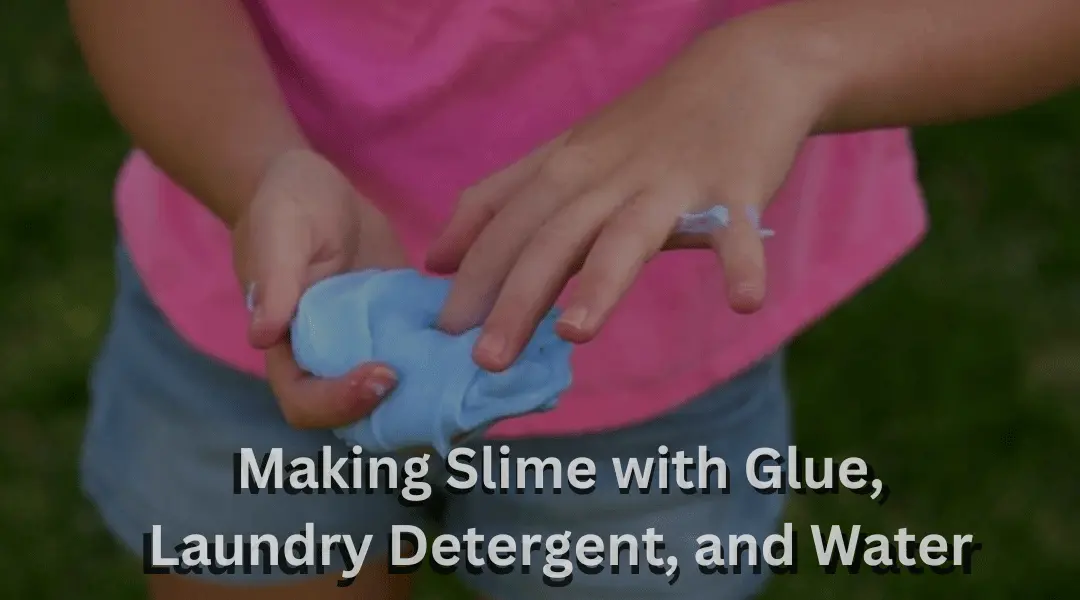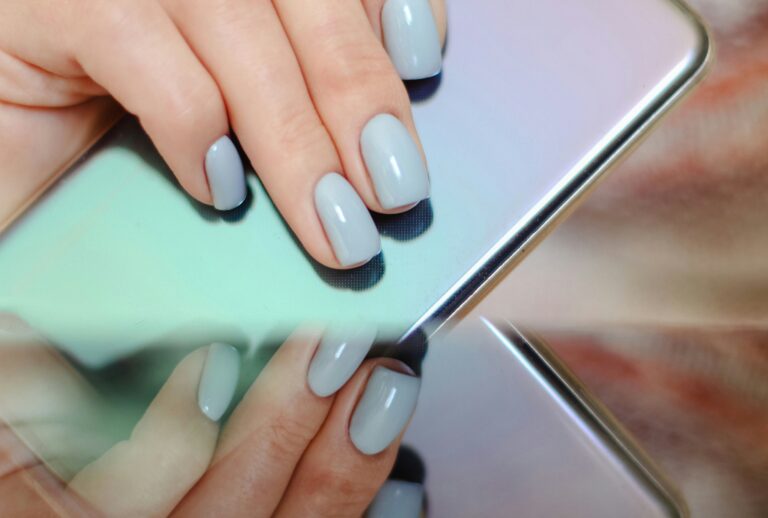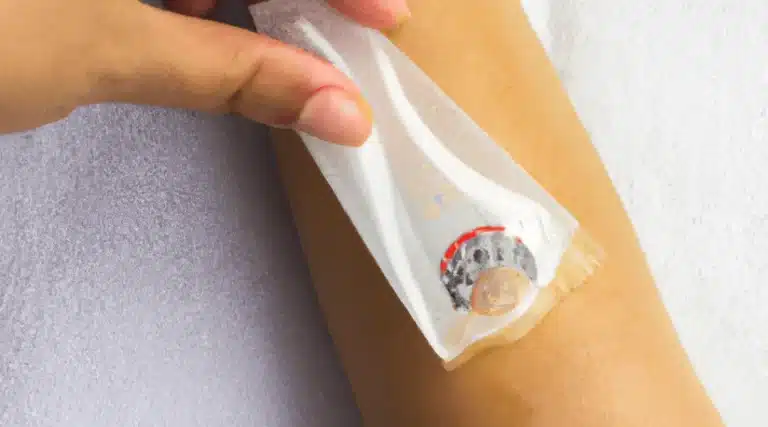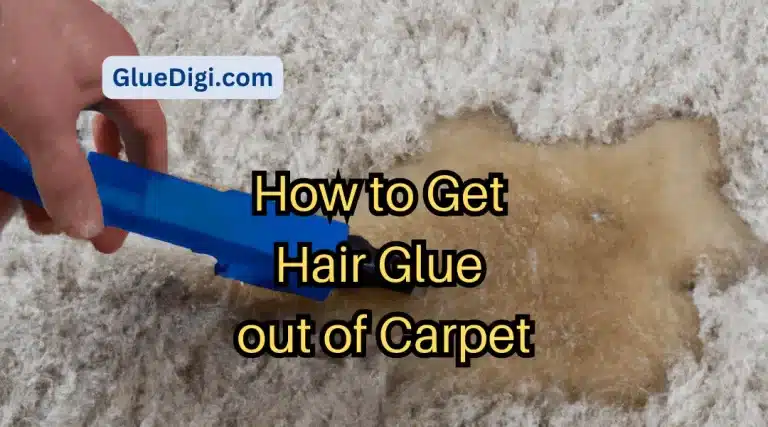Slime making is a fun and engaging activity that has captured the imagination of children and adults alike. If you’re looking to make slime with glue, laundry detergent, and water, then you’ve come to the right place.
Let’s dive into this peculiar topic and uncover the taste, health risks, and even unique uses of glue beyond its intended purpose.
This comprehensive guide will take you through the process of making slime step-by-step, as well as provide tips and tricks for achieving the perfect slime texture. Let’s get started!.
Introduction
Slime is a gooey and stretchy substance that has become increasingly popular over the years. It is easy to make and can be customized in a variety of ways, making it a fun and creative activity for people of all ages. To make slime with glue, laundry detergent, and water, you will need the following materials:
- White glue
- Laundry detergent
- Water
- Mixing bowl
- Spoon or spatula
- Food coloring or glitter (optional)
Safety Considerations
While making slime is a fun activity, it is important to take safety precautions to avoid any accidents. Here are some safety considerations to keep in mind:
Wear protective gloves:
- Always wear protective gloves when handling laundry detergent.
- This helps protect your skin from potential irritation or allergic reactions.
Ensure proper ventilation:
- Make sure the work area is well-ventilated.
- This prevents the inhalation of fumes from the laundry detergent or other chemicals used.
Choose safe ingredients:
- Use safe ingredients when making slime.
- Opt for non-toxic glue and laundry detergent labeled as safe for children.
- This reduces the risk of allergic reactions or adverse effects.
Avoid ingestion:
- Slime should never be ingested.
- Keep it away from the mouth and teach children that it is not meant to be eaten.
- Supervise young children to prevent accidental ingestion.
Prevent eye contact:
- Slime should not come into contact with the eyes.
- In case of accidental contact, immediately flush the eyes with water for several minutes.
- Seek medical attention if necessary.
Consider sensitive skin:
- Perform a patch test if you or your child have a history of skin sensitivity.
- Apply a small amount of the mixture to a small area of the skin and check for adverse reactions.
Proper handwashing:
- After handling slime or any ingredients, thoroughly wash your hands with soap and water.
- This removes any residual substances and ensures cleanliness.
Store and dispose appropriately:
- Store slime in airtight containers to prevent drying out and the growth of bacteria or mold.
- Follow appropriate waste disposal guidelines when disposing of slime.
Supervise young children:
- Provide proper adult supervision when children are involved in making slime.
- This minimizes the risk of accidents and ensures safe handling of materials.
Educate and communicate:
- Teach children about slime safety and potential hazards.
- Encourage open communication and address any concerns they may have.
By following these safety considerations, you can enjoy the fun of making slime while minimizing the risk of accidents or adverse reactions.
Understanding the Science Behind Slime
Understanding the Polymers:
- Slime is composed of polymers, which are long chains of molecules.
- These polymers give slime its unique texture and properties.
Glue and Laundry Detergent:
- Mixing glue and laundry detergent causes a chemical reaction.
- The polymers in the glue cross-link with borate ions in the detergent.
Cross-Linking Process:
- The cross-linking process creates a network of connections between polymers and borate ions.
- This network gives slime its stretchy and gooey consistency.
Consistency Factors:
- Different ingredients affect slime consistency.
- Adding more glue makes it stretchier, while adding more detergent makes it thicker.
Ideal Ratio:
- Start with equal parts glue and water as the base for your slime.
- This ratio provides a good starting point for achieving the desired texture.
Gradual Addition of Detergent:
- Add laundry detergent gradually to the glue and water mixture.
- Mix and observe the consistency after each addition.
- Adjust the amount to achieve the desired slime texture.
Experiment and Adjust:
- Making slime involves experimentation.
- Add more detergent if the slime is too sticky, and more water or glue if it’s too stiff.
- Continuously adjust until the perfect consistency is achieved.
Optional Additions:
- Enhance slime by adding color, glitter, or other fun elements.
- These additions don’t significantly impact the scientific principles but add visual appeal.
Safety Precautions:
- Follow safety guidelines while making slime.
- Avoid ingesting or getting slime in contact with eyes or open wounds.
- Thoroughly wash hands after handling slime.
Have Fun!
- Making slime is a fun and creative activity.
- Enjoy the process, experiment with different variations, and let your imagination run wild!
Remember, understanding the science behind slime-making helps you create the perfect slime while ensuring a safe and enjoyable experience.
Step-by-Step Guide to Making Slime

Here is a step-by-step guide to making slime with glue, laundry detergent, and water:
Step 1: Prepare Your Work Area
Before you start making slime, make sure your work area is clean and free of any dust or debris. This will help prevent any unwanted particles from getting into your slime.
Step 2: Choose the Right Glue
The type of glue you use will affect the texture of your slime. White glue is the most commonly used glue for making slime, but clear glue can also be used for a different texture.
Step 3: Mix the Glue and Water
In a mixing bowl, combine equal parts white glue and water. Mix well until the two are fully combined.
Step 4: Add Laundry Detergent
Add in laundry detergent, one tablespoon at a time, and mix well. The more laundry detergent you add, the thicker your slime will be.
Step 5: Mix and Knead the Slime
Once you’ve added enough laundry detergent to reach your desired consistency, mix and knead the slime until it is smooth and stretchy. If the slime is too sticky, add more laundry detergent. If it is too thick, add more water.
Step 6: Troubleshooting Common Problems
You might try adding extra washing detergent if your slime is too sticky. To thin it down if necessary, try adding additional water. Add extra glue if your slime is too runny.
Different Variations of Slime
Here are some different variations of slime that you can try making:
Clear Slime
To make clear slime, use clear glue instead of white glue. You can also add in clear beads or glitter to create a unique texture.
Glitter Slime
To make glitter slime, simply add in glitter to your slime mixture. You can use any color of glitter you like to create a fun and sparkly slime.
Fluffy Slime
To make fluffy slime, add in shaving cream to your slime mixture. This will give your slime a light and airy texture.
Butter Slime
To make butter slime, add in clay to your slime mixture. This will give your slime a smooth and buttery texture.
Magnetic Slime
To make magnetic slime, add in iron filings to your slime mixture. You can then use a magnet to make your slime move and dance.
How to Store Your Slime
To keep your slime fresh and stretchy, it is important to store it properly. Here are some tips for storing your slime:
- Use an airtight container to store your slime.
- Keep your slime in a cool, dry place away from direct sunlight.
- If your slime starts to dry out, add a few drops of water to revive it.
Fun and Creative Ways to Play with Slime
Here are some fun and creative ways to play with slime:
Slime Stretching Contests
See who can stretch their slime the furthest without it breaking.
Making Slime Bubbles
Blow bubbles with your slime by stretching it and then pulling it apart quickly.
Adding in Different Textures
Add in small objects like beads, foam balls, or sequins to your slime to create a unique texture.
Mixing in Different Colors
Mix different colors of slime together to create a fun and colorful slime masterpiece.
Conclusion
In conclusion, this ultimate guide to making slime with glue, laundry detergent, and water is here to empower you with the knowledge and techniques to embark on a thrilling and delightful adventure. Prepare to unlock your inner scientist and experience the sheer joy and excitement that comes with creating your own slime masterpiece. With each squish, stretch, and squeeze, you’ll feel a sense of satisfaction and wonder as you witness the transformation of simple ingredients into a captivating and interactive creation. Let your imagination soar and your creativity flow as you explore the limitless possibilities and unique textures that homemade slime has to offer. Get ready to embark on a journey filled with laughter, curiosity, and pure, unadulterated fun!



